golden calf
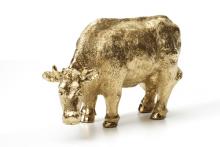
To avoid conflict, it is suggested that friendly conversation omits three things: money, politics, and religion. However, it’s no secret that in current Washington discourse two of these things seem to be indefinitely intertwined. I’ll give you a hint — it’s not “money and religion.”
In the past decade, the intimate relationship between money and politics has infiltrated the public sphere at an alarming rate: corporations set public policy agenda items, super PACS have unlimited reign over campaign finance, and just 0.4 percent of the U.S. population is responsible for funding 63 percent of candidate campaigns, political parties, and PACs.
But what do money and politics have to do with religion? Patrick Carolan, Executive Director of Franciscan Action Network (FAN), explained last week to a group of faith leaders at Catholic University why faith, money, and politics are interconnected.
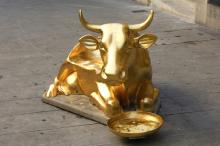
For most of human history, religious faith has been central to the life, economy, and government of virtually all societies. Babylon, Egypt, China, Greece, and Rome: all of these empires explicitly traced their authority from heaven, the gods, or other transcendent concepts that can only be described as religious. Religious acts were political acts, and vice versa. To challenge the status quo of the ruling authorities was to call into question the religious authorities, as well. Expressions of faith were serious business.
For more than a thousand years, Western Christianity was the theological glue that held European society together. We can still observe remnants of these former times in the civil religion of the United States. Even today, presidents invoke the name of God during speeches. Prayers are spoken before sessions of legislative bodies. New citizens and government employees are required to swear oaths of loyalty to the state. Our civil structures still bear traces of a time when Christian religious concepts were deeply intertwined with government.
For the most part, however, theistic religion is being pushed steadily out of our civic life.

Last week Pope Francis spoke out against the cult of money. Here is how Catholic News Service's Carol Glatz summarized his remarks:
Pope Francis called for global financial reform that respects human dignity, helps the poor, promotes the common good and allows states to regulate markets.
"Money has to serve, not to rule," he said in his strongest remarks yet as pope concerning the world's economic and financial crises.
A major reason behind the increase in social and economic woes worldwide "is in our relationship with money and our acceptance of its power over ourselves and our society," he told a group of diplomats May 16.
"We have created new idols" where the "golden calf of old has found a new and heartless image in the cult of money and the dictatorship of an economy which is faceless and lacking any truly humane goal."
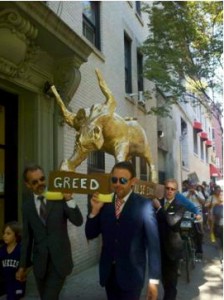 Editor’s Note: In light of the recent protests at #OccupyWallStreet and around the world, we have revisited Jim Wallis’ 2010 book Rediscovering Values: On Wall Street, Main Street, and Your Street and picked out some passages that are particularly pertinent to what we are seeing in our nation today.
Editor’s Note: In light of the recent protests at #OccupyWallStreet and around the world, we have revisited Jim Wallis’ 2010 book Rediscovering Values: On Wall Street, Main Street, and Your Street and picked out some passages that are particularly pertinent to what we are seeing in our nation today.
The Passover of the Jews was near, and Jesus went up to Jerusalem. In the temple he found people selling cattle, sheep, and doves, and the money changers seated at their tables. Making a whip of cords, he drove all of them out of the temple, both the sheep and the cattle. He also poured out the coins of the money changers and overturned their tables. He told those who were selling the doves, “Take these things out of here! Stop making my Father’s house a marketplace!” His disciples remembered that it was written, “Zeal for your house will consume me.”
– John 2:13-17
Interestingly, in his turning over of tables, Jesus specifically targeted the merchants who were selling doves. Doves were the least expensive sacrifice permitted to be offered in the temple, and, therefore, were often bought by the poorest of the pilgrims.
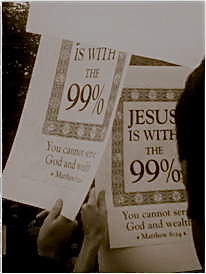
[When Jesus turns over the tables] we see a man enraged at injustice and passionately confronting those who exploit the poor. We also learn that there are some things that we all should get angry about, that there are situations where the only appropriate response is confrontation…
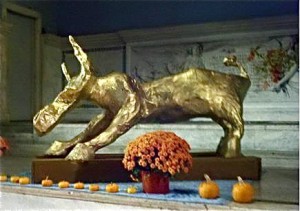 First, we were sold a lie. We were sold an illusion that promised the American Dream was as close as our next purchase. That we could pursue our selfish interests without thought to the consequences, because the “invisible hand” would work it all out in the end. We were told that we did not need to work for wealth, that it would come if only we put our money in the hands of the right stock broker, mutual fund, or stock…
First, we were sold a lie. We were sold an illusion that promised the American Dream was as close as our next purchase. That we could pursue our selfish interests without thought to the consequences, because the “invisible hand” would work it all out in the end. We were told that we did not need to work for wealth, that it would come if only we put our money in the hands of the right stock broker, mutual fund, or stock…
Second, the rules of the game failed. It was supposed to be simple. Work hard, get ahead, buy a home, and tuck some money away for the future in a 401(k). If you followed those rules, everything would work in your favor. But good jobs have disappeared, wages have been garnished, and 401(k) savings have disappeared. The rules of the game seem to have worked for those who set the rules, but not for those who played by them.
Third, our good was supposed to trickle down. We were promised that as the rich got richer, the rest of the country would prosper as well. If we handed our finances and ultimately our lives over to those who knew the market the best, it would benefit us all. If we took the virtues of the market and made them the virtues of our lives, we, too, would experience boundless prosperity. Fulfillment would come if we could just trust the market enough to work for us…
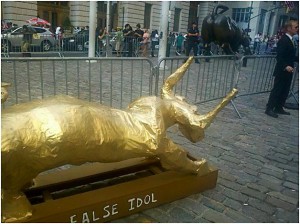 The market has become our “golden calf,” our idol of ultimate allegiance… This is when God—and then Moses—got angry. Why? Just because they built a golden calf? No. The calf could have been just a work of art, a statue to enjoy. What made the calf an idol was that the people gave the newly created calf the credit for leading them out of Egypt. They gave to the golden calf credit and attributes that belong only to God…
The market has become our “golden calf,” our idol of ultimate allegiance… This is when God—and then Moses—got angry. Why? Just because they built a golden calf? No. The calf could have been just a work of art, a statue to enjoy. What made the calf an idol was that the people gave the newly created calf the credit for leading them out of Egypt. They gave to the golden calf credit and attributes that belong only to God…
Today, instead of statues, we have hedge funds, mortgage- backed securities, 401(k)s, and mutual funds. We place blind faith in the hope that the stock indexes will just keep rising and real estate prices keep climbing. Market mechanisms were supposed to distribute risk so well that those who were reckless would never see the consequences of their actions. Trust, security, and hope in the future were all as close to us as the nearest financial planner’s office. Life and the world around us could all be explained with just the right market lens. These idols were supposed to make us happy and secure and provide for all our needs. Those who manage them became the leaders to whom we looked, not just for financial leadership, but direction for our entire lives. That is idolatry.
Rich and poor alike were sucked into making heroes out of those who seemed to be able to turn everything they touched into gold. Holocaust survivor and Nobel Peace Prize recipient Elie Wiesel lost virtually all of his personal wealth and his foundation’s, up to $37 million, to Bernie Madoffs Ponzi scheme. “We gave him everything, we thought he was God, we trusted everything in his hands.”‘
(All pictures are courtesy of Catholics United, who produced the ‘golden calf’. Extracts come from pages 19-29 of the hardcover edition of Rediscovering Values.)
As Christians we have a decision to make. In times of hopelessness and long periods of waiting for things to get better, will we let ourselves be cast into the all-consuming fires of idolatry?
Or, will we stand up against the false gods and catch the flame of the Spirit in our hearts and minds?
Our nation may very well be on the threshold of a crucial change. Who will you be standing with?
As we waste time fanning capitalism's raging inferno, the best parts of ourselves remain frozen.